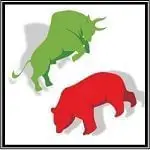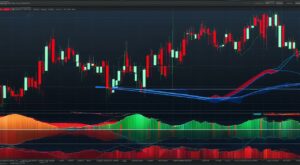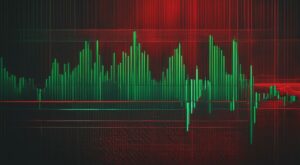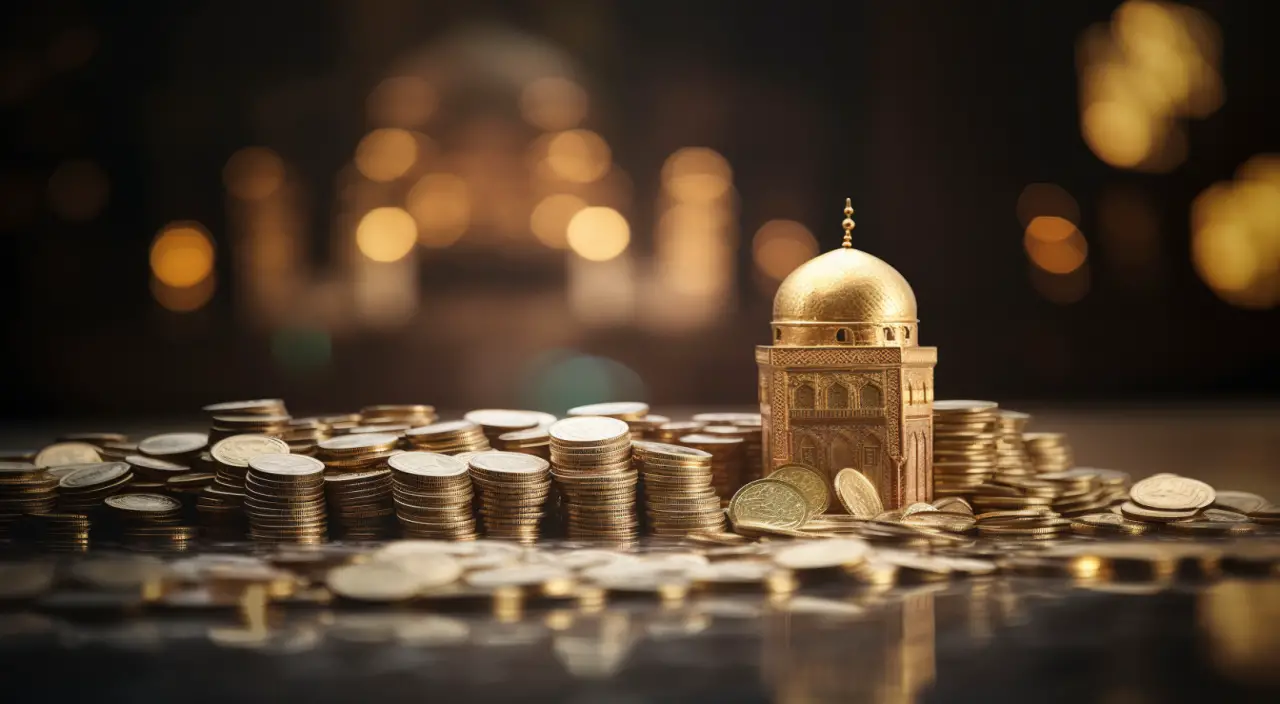Your cart is currently empty!
Why Forex Traders Lose Money? | A Beginner’s Guide

Affiliate Disclaimer: This post may contain affiliate link or links
Why forex traders lose money, a well-known truth is that a large percentage of forex traders fail. Various websites and blogs claim that 70 percent, 80 percent, and even more than 90 percent of forex traders lose money and eventually leave.
Many forex traders perform better than that, according to the forex website DailyFX, but rookie traders still have a hard time gaining ground in this market.
The following list will show you some of the most typical reasons why forex traders lose money, and it will help you join the elusive percent of successful traders.
Why forex traders lose money
Why do forex traders lose? The FX market is the world’s biggest financial market, with more than $5 trillion moved per day on average. While there are a lot of forex investors, only a few are actually successful.
Many traders fail for the same reasons that other asset classes’ investors fail. Furthermore, the severe degree of leverage (the use of borrowed funds to raise the possible return on market investments)
Traders are also denied the option to make repeated low-risk errors due to the comparatively tiny amounts of margin necessary when trading currencies.
Some traders may anticipate higher investment returns than the market can regularly provide, or incur more risk than they would in other markets due to factors unique to currency trading.

Key takeaway point
- Why forex traders lose money?
- What percentage of forex traders lose money?
- How many forex traders lose their money?
The market is something you understand and join when a trend is identified, not something you beat.
At the same time, if you attempt to obtain too much from the market with too little cash, the market might shake you out.
Traders that have the attitude of “winning the market” are more likely to trade excessively aggressively or against trends, which is a formula for catastrophe.
Low Initial Investment
The majority of currency traders begin by seeking for a means to get out of debt or earn quick cash.
To earn significant profits on a little amount of beginning cash, forex marketers often push you to trade large lot sizes and employ high leverage.
You need money to produce money, and you may achieve great returns on modest capital in the near term.
However, with a limited quantity of cash and a high level of risk due to excessive leverage, you’ll find yourself becoming emotional with each market movement, jumping in and out at the worst possible moments.
This problem may be avoided by never trading with too little money. For someone who wishes to start trading on a shoestring, this constraint is a challenging challenge to overcome.
If you’re new to trading, $1,000 is a good place to start (micro lots or smaller). You’re simply setting yourself up for catastrophe if you don’t.
Risk Management Mistakes
Risk management is essential for a forex trader’s survival, as it is in life. Even if you are an expert trader, inadequate risk management may wipe you out.
Your first goal should not be to generate a profit, but rather to safeguard what you have. Your capacity to produce a profit decreases when your capital is drained.
Place stop-loss orders and move them after you have a respectable profit to fight this danger and practice proper risk management.
Use sensible lot sizes in relation to your account capital. Above all, get out of a transaction if it no longer makes sense.
Read more article: Foreign Exchange Market Today
Greed is a powerful motivator
Some traders believe that they must wring every last penny out of a market shift. Every day, money may be made in the currency markets.
Trying to get every last pip before a currency pair changes might lead to you holding positions for too long, putting you at risk of losing the successful transaction you’re after.
The remedy seems to be self-evident: don’t be greedy. It’s great to aim for a decent profit, but there are plenty of pips available.
Because currencies vary on a daily basis, there’s no urgency to acquire that last pip; the next chance is just around the corner.
Tired of losing? Try Zero to Hero Today!
Read more articles
Trading indecisiveness
Trading regret occurs when a deal you initiate isn’t instantly successful, and you begin to think to yourself that you chose the incorrect option.
Then you terminate your deal and reverse it, only to watch the market return to its original course. In such scenario, you must choose a path and adhere to it.
All of this going back and forth will result in you losing little amounts of money from your account at a time until your investment capital is spent.
Trying to Decide Whether to Wear Tops or Bottoms
Many novice traders attempt to predict currency pair tipping moments. They will enter a trade on a pair, and as it continues to move in the wrong way, they will add to their position, certain that it will eventually come around.
If you trade in this manner, you will wind up with much greater exposure than you anticipated, as well as a very unfavorable deal.
It’s advisable to trade in the direction of the trend. The fact that you accurately selected one bottom out of ten tries isn’t worth the bragging rights.
Wait for confirmation on the trend shift if you believe the trend is about to change and want to trade in the new likely direction.
Take up the bottom in an uptrend, not a downtrend, if you want to pick up a position at the bottom.
Choose a peak when the market is making a corrective move upward, rather than an upswing that is part of a wider downturn, if you wish to initiate a trade at the top.
Read more article: Foreign Exchange Market Definition
Refusing To Be Incorrect
Some transactions simply aren’t meant to be. It’s human nature to want to be right, but you can’t always be.
Instead of sticking to the concept of being correct and ending up with a zero-balance trading account, traders should accept that they are occasionally wrong and move on.
It’s tough to accept when you’ve made a mistake, but sometimes you simply have to. Either you went into the business for the wrong reasons or it didn’t turn out the way you had hoped.
In any case, admitting your error, dumping the deal, and moving on to the next chance is the wisest course of action.
Purchasing a System
On the internet, there are several so-called forex trading techniques for sale. Some traders are on the lookout for that elusive 100% accurate forex trading strategy.
They continue to purchase and test methods until they give up, concluding that there is no way to win.
You must recognize that there is no such thing as a free lunch as a beginning trader. Winning in forex trading, like anything else, takes effort.
Instead of purchasing useless solutions from shady marketers on the internet, you may achieve success by developing your own technique, plan, and system.
Read more article: Learn Forex Trading Step by Step

What percentage of forex traders lose money?
Find out what your odds are of succeeding in forex and stock trading, as well as which brokers are the “riskiest” and “safest.”
For the first time in trading history, you will learn the true figures of how many people lose money while trading CFDs such as forex, stocks, commodities, and so on.
“What percentage of forex traders earn money?” and “How hazardous is forex trading?” are two of the most common queries that novice forex traders have.
There was considerable suspicion, but no one had any concrete evidence. That is, until lately…
Most traders are aware of the widely held belief that between 96 and 99 percent of traders lose money. For many years, this statistic had circulated, but it was more of a folk tale than a clear truth.
Although some data from a few brokers was available, it was not feasible to get findings from all market players. However, according to new legislation, the secret may now be exposed.
With the implementation of new European legislation on August 1, 2018, brokers must openly indicate the proportion of their customers that lose money in their marketing messages.
“When trading CFDs with this supplier, 80 percent of retail investor accounts lose money,” for example.

Is forex trading a gambling?
The answer is capital NO! Forex trading or market is never gambling and forex is 100% legal around 98% countries in the world, many people believe forex trading to be nothing more than gambling.
After all, when you take a long or short position in a currency pair, you are effectively betting on the price to go up or down. Is forex trading, therefore, really a type of gambling?
To the uninitiated or rookie forex trader, it may look that reaching this conclusion is simple, especially if you start studying the chart of any currency pair and notice how it moves in a seemingly random manner.
However, many major financial organizations and individual traders throughout the globe benefit consistently from trading forex markets, so you can be certain that they aren’t squandering significant sums of money on a daily basis.
Of course, there are several strategies to get an advantage while trading forex. Technical analysis is, of course, the most used method. This is the process of analyzing charts and technical indicators in order to spot trade patterns and possibly profitable trading opportunities.
They work so well because traders all around the globe look at the same charts and technical indicators and find the same patterns repeating themselves.
This enables them to take positions knowing that the price will most likely react in the same manner as it did before.
For example, if the GBP/USD has found support around 1.9600 three times before and does so again this time, many traders will notice and be encouraged to buy a long position, and it becomes a self-fulfilling prophesy in many respects.
Furthermore, with the growth of technology, many individuals can now quickly and easily follow whatever technical indicators they desire through the internet, making technical analysis an even more viable method of forex trading.
While there is some element of randomness in the markets on a very short-term basis, if you look at the longer-term charts and utilize technical analysis to analyze the markets and make trading choices, you can put the chances of winning in your favor.
To address the original question, I would reply that forex trading is not a type of gambling since with a little study, you can become a skilled technical analyst and identify high-probability trading situations where you win considerably more often than you lose.

How many forex traders lose their money?
As a consequence, we decided to compile data from all of the established brokers in order to determine what proportion of forex traders get favorable outcomes.
We seem to be the first to publish this information, therefore you’ve come to the right spot! The findings of a survey of 31 CFD brokers are shown below.
According to the stock exchange Etoro, a staggering 80% of day traders lose money over the course of a year, with a median loss of -36.30 percent!
It’s no surprise that more than 85% of all day traders give up after only two years.
So let’s look at why these investors are losing so much money, how you can avoid falling into this trap, and how you can end up gaining money rather than wasting it in the long run.
Day trading, for those who don’t know, is a sort of investing in which you purchase and sell a stock (or any other type of investment) in a short period of time (anything from minutes to a day or two)
To make a quick short-term “profit,” this type of investment relies on daily market momentum and price fluctuations… At least, that’s the plan.

Is forex in the Bible?
Is forex in the Bible? These are excellent questions that some people may struggle with or have concerns about. Let’s look into Forex Trading and the Bible together.
The Bible will be our first and final visit (all quotations are from the Authorized King James Version of the Holy Bible). Nothing compares to the Bible in terms of clarifying our knowledge.
The word “trade” occurs in the Bible five times. It refers to a person’s field of work. Our role as traders is to offer liquidity to the markets when someone else is suffering.
In a way, we’re like good Samaritans since we’re assisting another trader who was long a certain currency pair and it has unhappily pulled back against him on a (say) 15 minute chart, forming a buy setup after many bars have gone down.
We’re offering a service by stating, “I’m sorry this is giving you pain, please allow me to assist you… I’ll take care of it for you.”
Then we wait patiently while it climbs a series of bars. We profitably scale out of that situation. We are traders, and we get compensated for our services.
The lady from “Proverbs 31” will be our first visit. If God loves a virtuous woman (vs10), whose worth is much more than rubies, then he must also adore a good man.
God is not a person’s respecter. Let’s take a look at a few of her most lauded features. She “worked gladly with her hands,” according to verse 13.” She will labor at night to produce meat for her family, according to verse 15.
(It’s OK to trade the Asian session while awake.) She does not eat the bread of idleness, according to verse 27. (she is not lazy). The whole chapter is about her buying and selling and making money.
She is a successful businesswoman. She studies the land thoroughly before purchasing it. She is APPRECIATED for her ABILITY to provide for her family.

Is forex halal or haram?
One of the most often asked questions concerning forex trading is whether it is legal under Islamic law. The solution is complicated since it is based on Islamic financial philosophy and practice.
In the end, Islamic scholars agree that monetary transaction is permissible as long as specific requirements are met. However, there is substantial disagreement as to what those circumstances are and whether forex trading is declared haram.
Joebenz forex explores the complexities of currency trading from an Islamic viewpoint in this post.
The Arabic term haram means “forbidden.” According to the teachings of the Holy Qur’an, some activities are prohibited.
Drinking alcohol and eating specific foods, gambling, and earning interest are all examples of haram practices.
The final two, gambling and earning interest, are often linked to forex trading. This is one of the reasons why some Muslims regard currency trading to be haram.
Usury is defined as any economic transaction or contract that includes the charge of interest or riba, according to Islamic law. These kinds of trades are expressly forbidden in the Qur’an.
Interest is considered unfair and degrading to the individual who pays the riba. As a result, Islam only permits one type of loan: the Qardh al-Hasan, or interest-free loan.
When an investor retains open positions overnight in a normal forex deal, the broker charges a swap fee. The commission is essentially a rate of interest. In Islam, this fee scheme is not permitted.
To comply with these conflict-of-interest requirements, the exchange now provides swap-free FX trading accounts.
These let investors to maintain open positions in any currency pair for an extended amount of time. They may keep the trade open overnight without incurring any interest or FX exchange fees.
Spot trades, or transactions for immediate buying and selling with no overnight interest charges, are also exempt from riba.

Conclusion
If you follow these tips, you’ll have a better chance at succeeding at the forex market than losing money. But whether you win or lose, this is not a game that can be played long term.
It is a volatile market, and your chances for success grow slimmer over time. More than being taken advantage of by dealers, the tactics above reveal why traders lose money in general.
They represent common mistakes that people make when they trade without having an overall strategy.
To be honest you’re going to lose money. The only question is: how much? Forex is not an easy market, but if you follow these rules and learn from your mistakes.
You’ll be able to lose less and make more money in the long run. It’s a simple concept, but for many forex traders it’s an easy one to forget about!
Tired of losing? Try Zero to Hero Today!
Other related articles
- Trade Report Indicator: Indicator for Forex Traders
- Trend Profiteer Trading System: A Trader’s Must Have
- Quantum Trend Sniper Indicator MT4: Free Download
- German Sniper Indicator: Unveiling its Power
- Mastering MACD Intraday Trend | Indicator Free Download
- Crazy Accurate 5-Days Breakout Strategy: Unlock Success

Joseph Benson, I have been trading forex for more than 15 years now and I am still trading actively, a content writer, an Architect also SEO expert, learn how to trade easily with me.










Leave a Reply